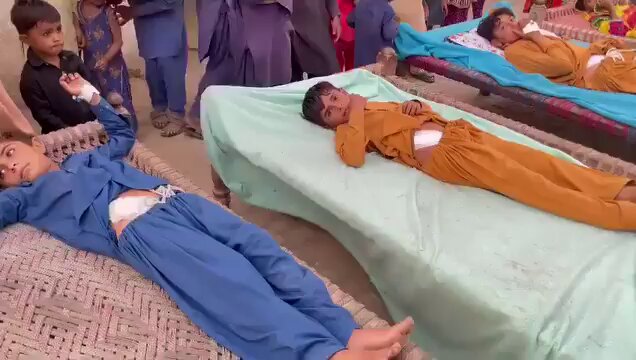In a horrifying revelation that has shocked the nation and the world, a large-scale illegal organ trafficking ring has been uncovered in Pakistan’s Punjab province. At the center of the scandal is Dr. Fawad Mukhtar, a rogue surgeon responsible for harvesting the kidneys of over 328 unsuspecting patients, many of whom were told they were undergoing routine surgeries for kidney stones. This heinous act represents one of the most disturbing health crimes in recent years and has raised urgent questions about medical ethics, law enforcement, and public health safety in Pakistan.
🚨 What Happened in Sadiqabad, Punjab?
In the town of Sadiqabad, part of Pakistan’s Punjab province, 25 individuals were deceived into undergoing surgery, allegedly for the removal of kidney stones. Tragically, all of them ended up losing their kidneys. This incident was just the tip of the iceberg.
Upon further investigation, authorities discovered that the same doctor had been operating across multiple cities, including Lahore, Taxila, and even in Pakistan-administered Kashmir, where over 300 more victims were found to have suffered the same fate.
نہائیت افسوسناک واردات ۔۔۔
🚨صادق آباد پنجاب میں 25 افراد کو گردوں میں پتھری کے آپریشن کا کہہ کر سب کے گردے نکال لئیے گئے 💔😭 ۔۔۔
🧠 How the Organ Trafficking Network Operated
The criminal network exploited poor and vulnerable patients, often from rural or underprivileged backgrounds. Here’s how the operation worked:
- Victims were approached at hospitals and offered “affordable” or “free” treatment for kidney-related issues.
- They were taken to illegal private facilities where unlicensed procedures were conducted.
- A car mechanic, not a certified anesthesiologist, was found administering anesthesia during the surgeries.
- Both kidneys were removed in some cases, leaving victims with lifelong health complications.
- The kidneys were then sold to wealthy clients, both in Pakistan and abroad, for as much as 10 million Pakistani rupees ($34,000) each.
🏛️ Who Was Responsible?
The key figure behind this operation is Dr. Fawad Mukhtar, a surgeon who has a criminal record of being arrested five times previously for similar offenses. Despite his repeated arrests, he continued to operate freely, thanks to systemic loopholes, weak enforcement, and legal bail provisions.
Seven accomplices have also been arrested, and the case is now under intense investigation.
⚖️ Legal Implications & Government Response
While Pakistan outlawed commercial organ trade in 2007 and introduced stricter regulations in 2010, enforcement remains weak, especially in rural areas and regions with minimal medical oversight like Pakistan-administered Kashmir.
After public outcry, Punjab’s caretaker chief minister, Mohsin Naqvi, ordered a crackdown on illegal organ transplants and formed a task force to investigate hospitals, clinics, and unauthorized medical practitioners.
He promised that those involved will be brought to justice, and new regulations may be introduced to prevent similar crimes in the future.
🌍 Impact on Pakistan’s Healthcare Reputation
This incident has not only affected the lives of hundreds of victims and their families but also tarnished the global image of Pakistan’s medical system. Human rights groups and international health organizations have condemned the acts, urging Pakistan to strengthen its healthcare governance.
Organ trafficking is considered a serious international crime, and Pakistan may now face increased pressure to enforce stricter penalties and adopt global best practices in transplant regulation.
❓Frequently Asked Questions (FAQs)
1. How did the doctor convince patients to undergo surgery?
Victims were mostly from low-income areas and were promised free or low-cost treatment for kidney stones. They were unaware their organs were being removed.
2. Were the surgeries performed in hospitals?
No. Most surgeries took place in unauthorized private residences and small clinics, not licensed hospitals.
3. What has happened to the main doctor and his team?
Dr. Fawad Mukhtar and seven of his accomplices have been arrested. Authorities are preparing a case against them under Pakistan’s Human Organ Transplant Act.
4. How can citizens protect themselves from such scams?
Always verify the hospital or clinic’s registration and licenses. Consult with multiple doctors before undergoing surgery, and never agree to procedures in non-hospital settings.
5. What steps is the government taking to stop this?
The Punjab government has launched a province-wide crackdown on illegal organ trading and is re-evaluating health regulations to close loopholes.
📌 Conclusion: A Call for Stronger Oversight
The kidney trafficking scandal in Pakistan has exposed terrifying cracks in the country’s healthcare and legal systems. While arrests have been made and investigations are underway, real change will only occur through policy reform, public awareness, and strict enforcement of the law.
The government must ensure this never happens again—because human organs are not commodities, and every patient deserves safety, dignity, and justice.










